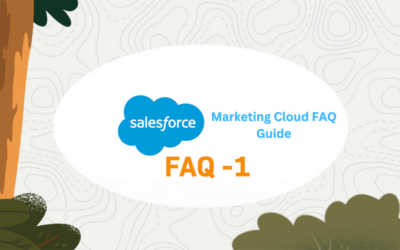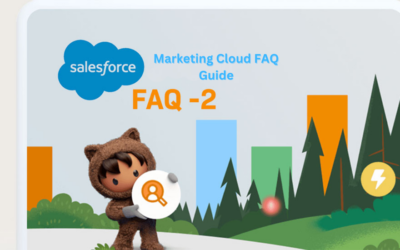In the ever-evolving landscape of customer service solutions, businesses are confronted with the critical task of choosing a platform that not only aligns with their operational needs but also propels them toward unparalleled customer satisfaction. This comprehensive exploration delves into the technical intricacies of two industry stalwarts: Salesforce Service Cloud and HubSpot’s Customer Service Hub. As organizations increasingly recognize the pivotal role of customer service in shaping brand loyalty and customer retention, the demand for sophisticated Customer Service Software (CSS) has surged. This analysis aims to dissect the technical nuances of Salesforce Service Cloud and HubSpot’s Customer Service Hub, shedding light on their respective architectures, customization capabilities, integration prowess, and automation functionalities. By unraveling the technical fabric of these solutions, businesses can make informed decisions, steering toward a customer service strategy that not only resolves queries efficiently but also elevates the overall customer experience.
Salesforce Service Cloud, anchored in the robust Salesforce CRM ecosystem, stands tall as a stalwart in the realm of customer service platforms. Its architecture, deeply rooted in a multi-tenant model, ensures scalability and flexibility for organizations navigating diverse customer service landscapes. On the other side of the spectrum, HubSpot’s Customer Service Hub seamlessly integrates with the HubSpot CRM, offering a user-friendly yet technically sophisticated approach. The intersection of these two platforms in the technological arena sets the stage for a nuanced exploration, where customization, automation, and extensibility become pivotal considerations for businesses striving to master the intricate art of customer service. If you need assistance with Salesforce CRM setup and optimization, companies like CRM Force can provide valuable expertise and support.
1- Salesforce Service Cloud
Salesforce Service Cloud is a robust customer service platform that provides businesses with a comprehensive set of tools and features to manage and enhance customer support operations. At its core, Service Cloud is built on the Salesforce platform, which is a cloud-based customer relationship management (CRM) system. Here are some technical details about the key aspects of Salesforce Service Cloud:
Architecture: Salesforce Service Cloud is built on a multi-tenant architecture, meaning that multiple organizations (tenants) can use the same instance of the software while maintaining data isolation and security. This architecture ensures scalability, as organizations can scale their usage of the platform based on their evolving needs.
Integration with Salesforce Ecosystem: One of the notable technical aspects of Service Cloud is its deep integration with the broader Salesforce ecosystem. This integration allows seamless collaboration and data sharing between different Salesforce products, including Sales Cloud and Marketing Cloud. Organizations using Salesforce for multiple functions can leverage this integration to achieve a unified view of customer data across departments.
Data Model and Objects: Service Cloud is built on a highly customizable data model that allows organizations to tailor the platform to their specific requirements. It employs a range of standard and custom objects to represent different entities and relationships within the customer service process. Examples of standard objects include Case, Account, Contact, and Knowledge Article.
Automation and Workflows: Salesforce Service Cloud provides a powerful automation engine that enables the creation of workflows and processes to automate routine tasks and streamline customer service operations. Workflow rules, process builders, and approval processes are among the automation tools available. This automation capability is crucial for optimizing response times, reducing manual effort, and ensuring consistent service delivery.
Knowledge Base: The Knowledge Base in Service Cloud is a repository for information that support agents and customers can access. It is built on the Knowledge object, which allows the creation and management of articles. The Knowledge Base is intricately connected to case management, enabling support teams to link relevant articles to cases, and providing agents with quick access to valuable information during issue resolution.
Live Agent and Omni-Channel: Salesforce Service Cloud includes Live Agent functionality, allowing businesses to integrate live chat support directly into their customer service channels. Additionally, the Omni-Channel feature helps distribute work items, such as cases and chats, among available agents based on predefined rules. This ensures a balanced workload and timely response to customer inquiries.
APIs and Extensibility: Service Cloud provides a set of APIs (Application Programming Interfaces) that allow developers to integrate and extend the functionality of the platform. This extensibility is crucial for organizations that require custom integrations with other systems, automation of specific processes, or the development of custom applications on top of the Service Cloud platform.
2- HubSpot: A Comprehensive Customer Service Solution
HubSpot’s Customer Service Hub is a technical powerhouse designed to provide businesses with a comprehensive set of tools and features for managing and optimizing customer service operations. Here are some technical details about key aspects of HubSpot’s Customer Service Hub:
HubSpot CRM Integration: At the core of the Customer Service Hub is the integration with HubSpot’s CRM (Customer Relationship Management). This integration allows businesses to maintain a centralized repository of customer data, ensuring that customer interactions, history, and relevant information are readily available to support agents. The CRM integration enables seamless communication and data sharing between the customer service, marketing, and sales teams.
Ticketing System: HubSpot’s Customer Service Hub employs a robust ticketing system to manage and track customer inquiries, issues, and service requests. The ticketing system is built on the concept of “tickets” as objects, which can be customized to match the specific needs of an organization. This customization includes the creation of custom properties, ticket pipelines, and automation rules to streamline ticket management.
Automation and Workflows: Automation is a key technical aspect of HubSpot’s Customer Service Hub. Businesses can leverage automation tools like workflows to create rule-based processes that automatically trigger actions based on predefined criteria. This automation enhances efficiency by automating repetitive tasks, ensuring that service teams can focus on more complex issues that require human intervention.
Knowledge Base: The Knowledge Base in HubSpot provides a technical framework for creating and managing a repository of articles and documentation. Using the Knowledge Base functionality, businesses can organize articles into categories, implement version control, and link articles to tickets. This technical infrastructure ensures that agents have access to up-to-date information when resolving customer issues.
Live Chat and Conversations: HubSpot’s Customer Service Hub includes live chat functionality, allowing businesses to engage with customers in real-time. The live chat feature is part of the broader Conversations toolset, which enables businesses to manage and track customer interactions across various channels. The technical architecture ensures seamless integration between live chat, email, and other communication channels.
Unified Inbox: The Unified Inbox is a technical solution within HubSpot that consolidates customer communications from various channels into a single, centralized interface. This feature provides support agents with a unified view of customer interactions, enabling them to respond promptly and maintain a consistent communication history.
APIs and Extensibility: HubSpot’s Customer Service Hub offers a set of APIs (Application Programming Interfaces) that developers can use to integrate the platform with other systems, applications, or custom solutions. This extensibility allows businesses to tailor the Customer Service Hub to their specific needs, ensuring seamless integration with existing workflows and third-party applications.
3- Comparison between Salesforce Service Cloud and HubSpot’s Customer Service Hub
A- Data Model and Customization
Salesforce Service Cloud: Utilizes a highly customizable data model with a wide array of standard and custom objects, allowing organizations to tailor the platform to their specific needs. Custom fields, relationships, and object configurations are integral for creating a bespoke customer service environment.
HubSpot Customer Service Hub: Leverages the HubSpot CRM as a foundation, offering customizable objects and properties. Organizations can define custom objects, properties, and associations to model their unique service processes. The flexibility extends to pipeline configurations and customizations within the CRM.
B- Integration Capabilities
Salesforce Service Cloud: Boasts deep integration within the broader Salesforce ecosystem. The platform offers RESTful APIs that enable seamless integration with third-party applications and systems. Additionally, Salesforce’s AppExchange marketplace provides a wealth of pre-built integrations.
HubSpot Customer Service Hub: Integrates natively with the HubSpot CRM and seamlessly connects with other HubSpot Hubs, such as Marketing and Sales. HubSpot also provides APIs that enable integration with external applications and systems, offering flexibility for businesses with diverse technology stacks.
C- Automation and Workflows
Salesforce Service Cloud: Features a robust automation engine allowing the creation of workflows, process builder flows, and approval processes. Automation rules can be configured to trigger actions based on predefined criteria, streamlining various aspects of customer service operations.
HubSpot Customer Service Hub: Offers powerful automation tools such as workflows, ticket routing automation, and bot automation. The platform’s automation capabilities enable businesses to automate repetitive tasks, ensuring consistent and efficient service delivery.
D- Knowledge Management
Salesforce Service Cloud: Employs a Knowledge Base that allows organizations to create, manage, and share articles. Its technical infrastructure supports the integration of knowledge articles with case management, enabling support agents to access relevant information during issue resolution.
HubSpot Customer Service Hub: Features a Knowledge Base where organizations can create and organize articles. The technical architecture ensures version control, categorization, and linking articles to tickets, enhancing the overall knowledge management process.
E- Communication Channels
Salesforce Service Cloud: Offers a multi-channel approach to customer communication, including email, social media, and live chat. The platform’s technical capabilities allow businesses to centralize customer interactions and maintain a unified view across different channels.
HubSpot Customer Service Hub: Provides a unified inbox that consolidates customer communications from various channels, including email and live chat. The technical framework ensures a seamless integration of these communication channels for a unified customer service experience.
F- Extensibility through APIs
Salesforce Service Cloud: Provides a comprehensive set of APIs (REST and SOAP) that allow developers to extend the platform’s functionality. This extensibility enables integration with external systems, custom application development, and the creation of unique solutions tailored to specific business needs.
HubSpot Customer Service Hub: Offers APIs that allow businesses to integrate the Customer Service Hub with other applications and systems. The extensibility supports custom integrations, enabling organizations to adapt the platform to their existing workflows and infrastructure.
Conclusion
In conclusion, the technical landscape painted by Salesforce Service Cloud and HubSpot’s Customer Service Hub signifies the ever-advancing frontier of customer service solutions. As businesses navigate the complexities of today’s market, the choice between these platforms becomes not merely a selection of software but a strategic decision that directly influences customer interactions and satisfaction. Salesforce’s Service Cloud, with its deep integration within the Salesforce ecosystem and robust customization options, offers a formidable arsenal for enterprises seeking a technically sophisticated solution. Meanwhile, HubSpot’s Customer Service Hub, with its user-friendly interface and seamless CRM integration, provides a compelling alternative, emphasizing simplicity without sacrificing technical prowess. The verdict on the optimal solution hinges on an organization’s unique requirements, technical infrastructure, and the specific contours of its customer service strategy. It is within this realm of Customer Service Software that businesses can sculpt an environment capable of not only resolving queries but fostering lasting customer relationships and brand loyalty. The dynamic interplay between Salesforce Service Cloud and HubSpot’s Customer Service Hub highlights the ever-evolving nature of the technical tapestry supporting modern customer service initiatives.
In navigating the labyrinth of customer service software, the technical intricacies of Salesforce Service Cloud and HubSpot’s Customer Service Hub illuminate distinct pathways for businesses to fortify their customer service endeavors. The choice between these platforms transcends a mere preference for features; it involves a strategic alignment of technical capabilities with organizational needs. Salesforce Service Cloud, with its multi-tenant architecture and intricate integration capabilities, positions itself as a stalwart for enterprises seeking a scalable and deeply connected solution. Conversely, HubSpot’s Customer Service Hub, boasting a CRM-centric approach and intuitive user interface, caters to organizations valuing simplicity without compromising on technical sophistication. As businesses embark on the quest for optimal customer service software, they find themselves at the crossroads of technological prowess and operational efficiency, compelled to select a platform that not only resolves issues promptly but also forms the cornerstone of a customer-centric ethos. To learn more about how CRM Force can assist you in recruiting top CRM talent and optimizing your CRM strategies for successful drip campaigns, contact us today. Together, let’s maximize your customer engagement Contact Us today.





